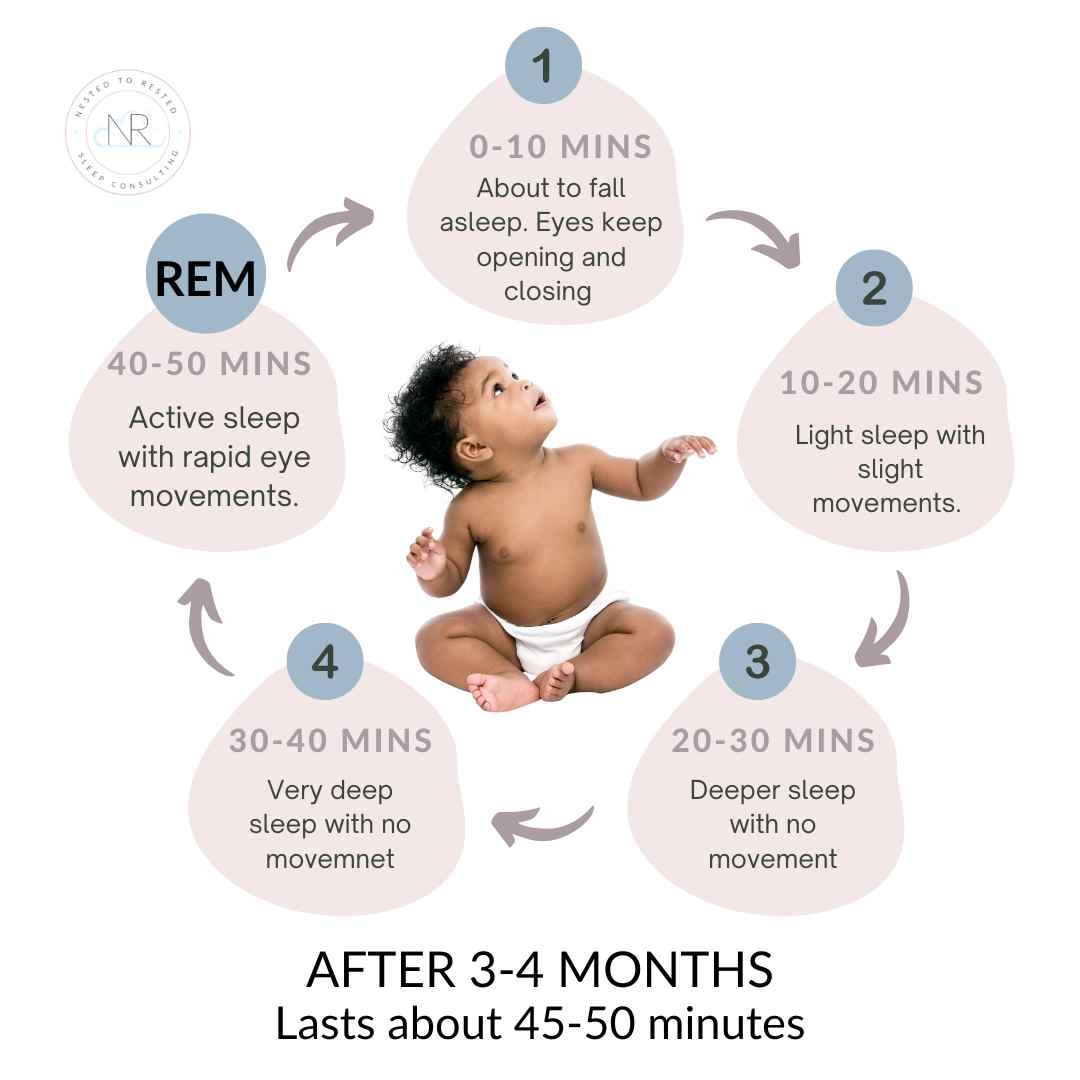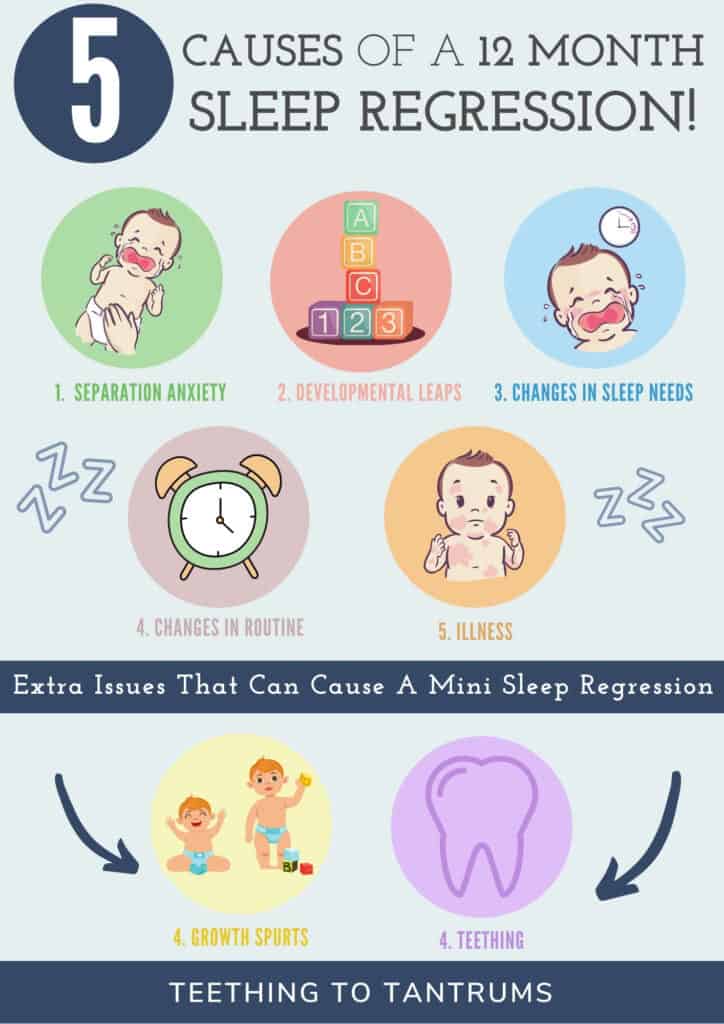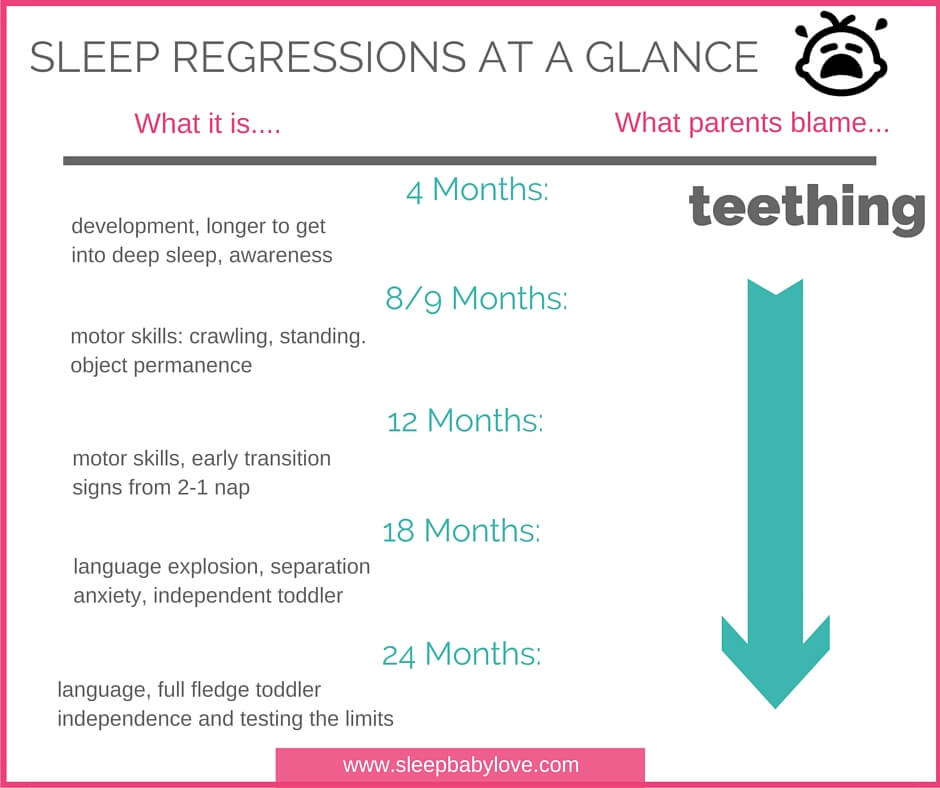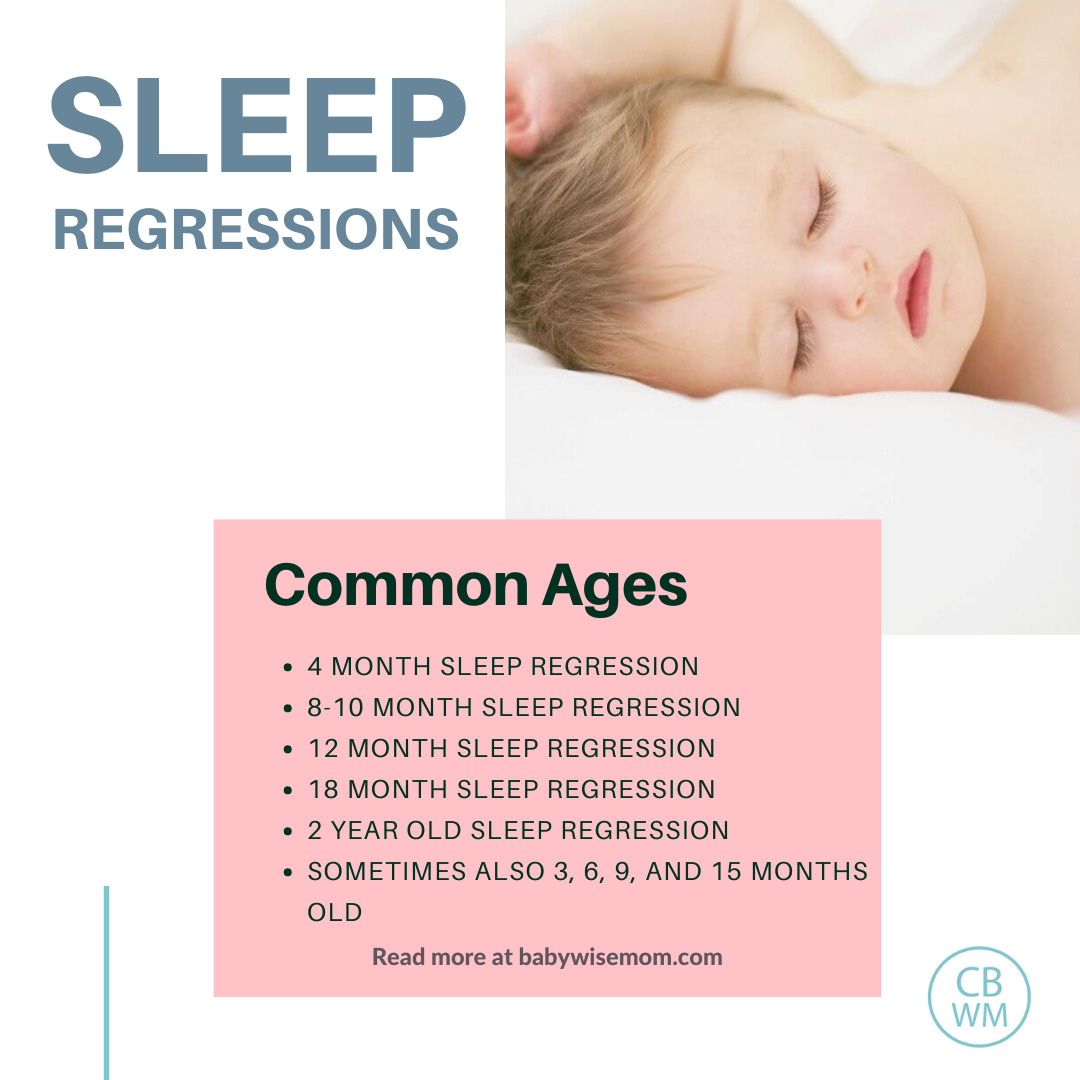What Is A Sleep Regression

Your Ultimate Guide To Surviving The 4 Month Sleep Regression Pediatric And Child Sleep Consultant Causes of a sleep regression may include teething, reaching new milestones, a growth spurt, traveling, illness, or a change in routine. signs of a sleep regression include trouble falling asleep, more frequent night waking, resisting naps, and increased fussiness. sleep regressions often happen when your child is between 3 and 4 months, 6. A sleep regression is an abrupt change in an infant’s sleeping pattern, and many babies experience several stages of sleep regression during the first 2 years of life.

Common Sleep Regressions And How To Survive Them Sleep regression is a common and exhausting reality during a baby’s first year. to help the phase pass quickly, focus on sleep training and work to build a calm and relaxing bedtime and nap. The entire sleep regression lasts 3 to 6 weeks, on average, and some days weeks will simply be better than others. the main difference with 10 month olds is that many of them can stand up in their beds, which can complicate matters. find 8, 9, and 10 month sleep regression help here:. Sleep regression will vary for every baby, but it typically begins when an infant is around four months old 2. a sleep regression period can last for up to six weeks before your baby returns to more typical sleep patterns. the 4 month sleep regression is the biggest one, but there are also 6 month, 8 month, 12 month, and 18 month regressions. Sleep regressions are blips on a baby’s sleep radar where she wakes up more often throughout the night or has a harder time napping. sleep regressions are completely normal and often occur at predictable times during your little one’s first year — including the 4 month sleep regression, which can actually hit any time between 3 and 4 months.

12 Month Sleep Regression The Complete Survival Guide Sleep regression will vary for every baby, but it typically begins when an infant is around four months old 2. a sleep regression period can last for up to six weeks before your baby returns to more typical sleep patterns. the 4 month sleep regression is the biggest one, but there are also 6 month, 8 month, 12 month, and 18 month regressions. Sleep regressions are blips on a baby’s sleep radar where she wakes up more often throughout the night or has a harder time napping. sleep regressions are completely normal and often occur at predictable times during your little one’s first year — including the 4 month sleep regression, which can actually hit any time between 3 and 4 months. Sleep regressions can be hard, and the 12 month sleep regression is no different. for a few weeks, you and your toddler will be tired, cranky, exhausted and frustrated. but this period is important. Sometimes your baby’s sleep patterns can change. where they once slept well, they may start to sleep less, wake more often or find it harder to settle during the night. this is sometimes called a "sleep regression", although changes in sleep are part of your baby’s normal development. these periods of change can be ongoing.

4 Tips To Survive If Your Child Is Going Through A Sleep Regression Specifically 3 Sleep Sleep regressions can be hard, and the 12 month sleep regression is no different. for a few weeks, you and your toddler will be tired, cranky, exhausted and frustrated. but this period is important. Sometimes your baby’s sleep patterns can change. where they once slept well, they may start to sleep less, wake more often or find it harder to settle during the night. this is sometimes called a "sleep regression", although changes in sleep are part of your baby’s normal development. these periods of change can be ongoing.

Sleep Regressions Causes Ages And What To Do

Comments are closed.